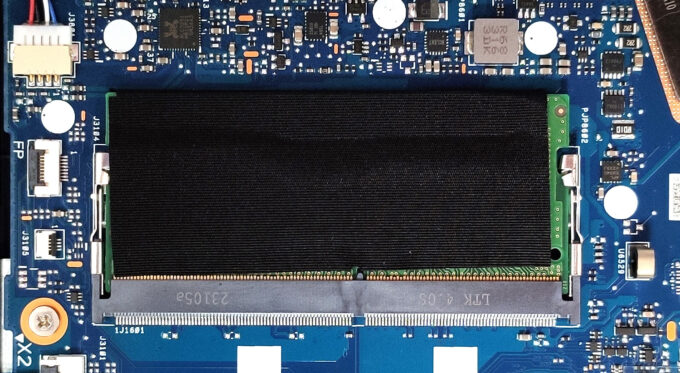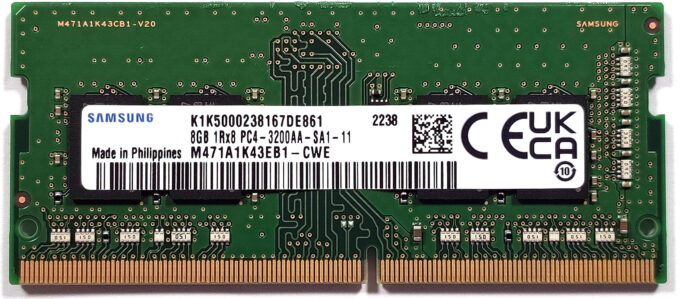How to open ASUS Vivobook 15 F1504 (X1504) – disassembly and upgrade options
Step 1: Accessing the Internal Components
- Ensure the ASUS Vivobook 15 F1504 (X1504) is powered off and placed on a soft, clean surface to prevent scratches or damage.
- Remove the 10 Phillips-head screws from the bottom of the laptop.
- Use a plastic tool to gently pry the bottom panel off, starting from one of the top two corners.
Hint: Be cautious during this process to avoid damaging the internal clips or the laptop casing.
Step 2: Removing the Battery
- Disconnect the battery by pulling out its connector from the motherboard.
- Remove the 4 Phillips-head screws securing the battery to the laptop’s chassis, then lift the 42Wh battery away from the device.
Caution: Handle the battery and its connector with care to avoid any damage.
More info: The 42Wh battery provides up to 8 hours and 20 minutes of web browsing or 6 hours and 40 minutes of video playback, offering decent battery life for everyday use.
Memory Upgrade
- Identify the SODIMM slot for memory expansion. The laptop comes with either 4 or 8GB of soldered DDR4 RAM, and the SODIMM slot allows for an additional DDR4 memory stick up to 16GB.
- Note that while the memory stick is rated at 3200MHz, it operates at 2666MHz frequency due to system limitations.
Hint: Upgrading the RAM can significantly enhance the laptop’s multitasking capabilities and overall performance.
You can buy DDR4 RAM modules here: Buy from Amazon.com (#CommissionsEarned)
Storage Upgrade
- Locate the M.2 slot compatible with Gen 4 SSDs for a high-speed storage upgrade.
- Consider installing a new NVMe SSD to enhance the laptop’s storage capacity and speed.
- Hint: Don’t forget to check out our Top M.2 SSDs Performance Rankings to choose and purchase a new drive when needed.
More info: A Gen 4 SSD upgrade can significantly improve data transfer speeds and system responsiveness.
You can buy Gen 4 M.2 SSD modules here: Buy from Amazon.com (#CommissionsEarned)
Examining the Cooling System
Inspect the cooling system, which includes a single fan, one long heat pipe, one heat sink, and a heat spreader, designed to efficiently manage the thermal output of the device.
















